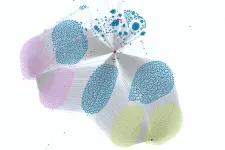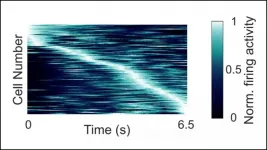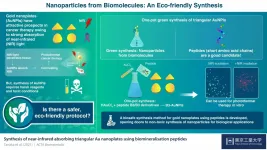(Press-News.org) A new approach to molecular drug design has yielded a highly promising bladder cancer drug, which induced rapid shedding of tumour cells and resulted in a significant reduction in tumour size when used in clinical trials.
These potent effects were seen in patients with non-muscle invasive bladder cancer (NMIBC) and the treatment was shown to be safe, as no drug-related side effects were observed.
The exciting research involved a collaborative group of scientists from Trinity College Dublin, Charles University and Motol Hospital (Prague), Lund University, and startup company Hamlet Pharma. The study has just been published in leading journal Nature Communications.
Bladder cancer - a global killer
Bladder cancer is the fifth most common malignancy in Europe (and the fourth most common in the US). It is associated with the highest life-time treatment costs per patient of all cancers, and more than 80% of patients recur after complete surgical removal of the first tumour.
Over the past three decades, few drugs have been approved for non-muscle-invasive disease and - compounding the problem - access to these drugs is limited by insufficient supply, including BCG immuno-therapy and common chemotherapeutics such as Mitomycin and Epirubicin.
The new approach
The new approach involved designing a drug candidate using the "intrinsically disordered proteins" (IDP) concept, which relates to the recent understanding that a large segment of proteins in the body do not have a fixed 3D structure (they each typically instead take shape in a variety of ways/structures that change depending on a range of factors).
This contrasts with the more common drug design direction taken, which is based on the "lock and key" concept. This relates to the idea that proteins have fixed, well-organised 3D structures, allowing drugs to be designed to target very specific regions.
The new approach involved the use of an IDP complex known as HAMLET - a component of human milk - which, when partially unfolded, possesses tremendous cancer-killing abilities.
Dr Ken H Mok, Associate Professor in Trinity's School of Biochemistry and Immunology and the Trinity Biomedical Sciences Institute led the structural element of the work. He said:
"Targeted cancer therapies have made significant advances in recent years but the lack of tumour specificity remains a significant concern. Few current therapies kill cancer cells without harming healthy tissues, and severe side effects have become accepted as a necessary price to pay for survival or cure. This research is therefore extremely exciting as the clinical trials show great impact in reducing tumour size in people with this form of bladder cancer without any side-effects.
"From a scientific perspective - and with a nod to the great potential for other therapeutic discoveries - it is also extremely exciting to have contributed to an entirely new approach to molecular drug design. Intrinsically disordered proteins compose over 50% of the human proteome and their malleability to adapt towards binding a variety of surfaces may, in some cases such as this, result in a gain of function. One motif may have a 'targetable weakness' that others don't have.
"This concept may help people understand why drugs designed using "lock and key" principles often fail in clinical trials if they encounter different structural forms of the protein they were made to attack. Once the blueprints change, a promising drug may not have the desired impact.
"In a way, we are witnessing an analogous rapid variation in protein structure during this COVID-19 pandemic, albeit through the sampling of mutation space. Although not an intrinsically disordered protein, the spike protein (S-protein) of the virus is continuously varying its thermodynamic stability or allowing it to be processed more readily by our cells - in other words, it is practising a kind of conformational fluidity."
INFORMATION:
Preliminary results from the European gene therapy trial for Crigler-Najjar syndrome, conducted by Genethon in collaboration with European network CureCN, were presented at the EASL (European Association for the Study of the Liver) annual International Liver Congress on June 26. Based on initial observations, the drug candidate is well tolerated and the first therapeutic effects have been demonstrated, to be confirmed as the trial continues.
Crigler-Najjar syndrome is a rare genetic liver disease characterized by abnormally high levels of bilirubin in the blood (hyperbilirubinemia). This accumulation of bilirubin is caused by a deficiency of the UGT1A1 enzyme, responsible for transforming bilirubin into a substance that can be eliminated by the ...
ATLANTA - JUNE 28, 2021 - A new study finds evidence for adverse effects of the COVID-19 pandemic on declines in cancer detection and surgical treatments. The study, appearing in JNCI: The Journal of the National Cancer Institute, finds a 10.2% decline in real-time electronic pathology reports from population-based cancer registries in 2020 compared with those in 2019.
This study observation period, through December 2020, is one of the longest to date for evaluating the effects of the COVID-19 pandemic on cancer-related trends. To learn more about the indirect effects of the pandemic on cancer care, investigators led by Robin Yabroff, PhD, MBA of the American ...
Up to 7 million people each year receive care in an emergency department (ED) for chest pain, a symptom of a potential heart condition. Over 80 percent of chest pain patients, however, ultimately have no evidence of cardiovascular disease or acute coronary syndrome. To disincentivize patients from over-utilizing costly care, insurers and employers are increasingly opting for high-deductible health plans (HDHPs) that require significant out-of-pocket spending before coverage begins. Researchers from Brigham and Women's Hospital and Harvard Pilgrim Health Care Institute investigated whether ...
The internet is full of dangers: Sensitive data can be leaked, malicious websites can allow hackers to access private computers. The Security & Privacy Research Unit at TU Wien in collaboration with Ca' Foscari University has now uncovered a new important security vulnerability that has been overlooked so far. Large websites often have many subdomains - for example, "sub.example.com" could be a subdomain of the website "example.com". With certain tricks, it is possible to take control of such subdomains. And if that happens, new security holes open up that also ...
The exoplanet satellite hunter CHEOPS of the European Space Agency (ESA), in which the Instituto de Astrofísica de Canarias (IAC) is participating along with other European institutions, has unexpectedly detected a third planet passing in front of its star while it was exploring two previously known planets around the same star. This transit, according to researchers, will reveal exciting details about a strange planet "without a known equivalent".
The discovery is one of the first results of CHEOPS (CHaracterising ExOPlanet Satellite) and the first time that an exoplanet has been seen with a period longer than 100 days transiting a star which is sufficiently ...
Scientists of Tomsk Polytechnic University were able to obtain polytetrafluoroethylene (PTFE) membranes using electrospinning. PTFE is known to be the most stable existent polymer. According to the scientists, it is a simple, affordable and easily scalable method, which will allow obtaining chemically stable membranes in industrial-scale production. The membranes can be used in petrochemical, aerospace, nuclear industries, carbon-free energy and medicine.
The latest results of the research of physical and chemical properties and biocompatibility of the obtained membranes are published ...
The U.S. Food and Drug Administration's controversial decision to approve aducanumab for the treatment of Alzheimer's disease raises at least three major ethical issues that need to be addressed, states a new article in the Hastings Center Report:
Billions of dollars in Medicare resources (which is to say, taxpayer dollars) are at risk of being unjustly squandered.
Physicians must choose between facilitating this unjust squandering and denying desperate patients and families access to this drug.
Patients and families are having false hopes legitimated and encouraged when physicians prescribe aducanumab.
The drug's approval was contrary to the nearly unanimous judgment of an FDA advisory committee that there was little reliable evidence of significant ...
HOUSTON - (June 28, 2021) - Rice University computer scientists are sending RAMBO to rescue genomic researchers who sometimes wait days or weeks for search results from enormous DNA databases.
DNA sequencing is so popular, genomic datasets are doubling in size every two years, and the tools to search the data haven't kept pace. Researchers who compare DNA across genomes or study the evolution of organisms like the virus that causes COVID-19 often wait weeks for software to index large, "metagenomic" databases, which get bigger every month and are now measured in petabytes.
RAMBO, which is short for "repeated and merged bloom filter," is a new method that can cut indexing times for such ...
Neurons in the hippocampus fire during specific moments in time, according to research recently published in JNeurosci. The cells may contribute to memory by encoding information about the time and order of events.
Episodic memories involve remembering the "what, where, and when" of past experiences. The "where" may be encoded by place cells in the hippocampus, which fire in response to specific locations. Rodents have hippocampal neurons that fire in response to specific moments in time -- the "when" -- but until recently it was not known if the human brain contained them too.
Reddy et al. recorded the electrical activity of neurons in the hippocampus of epilepsy patients undergoing diagnostic invasive monitoring ...
In cancer therapy, the effectiveness of an approach is determined by its ability to preserve the non-cancerous cells. Simply put, the higher the collateral damage, the greater are the side-effects of a therapy. An ideal situation is where only the cancer cells can be targeted and destroyed. In this regard, photothermal therapy--an approach in which cancer cells infused with gold nanoparticles can be heated up and destroyed using near-infrared (NIR) light that is strongly absorbed by the gold nanoparticles--has emerged as a promising strategy due to its minimally invasive nature.
"Because NIR light is able to penetrate biological tissues, it can illuminate ...




